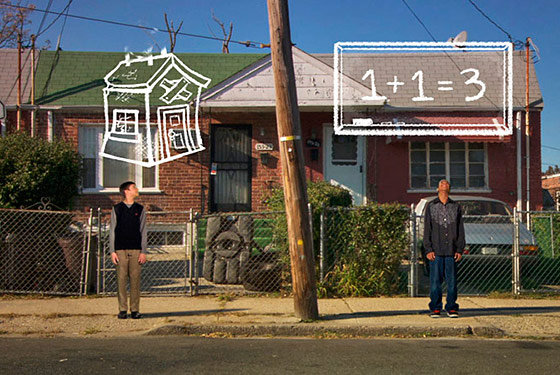
Steven D. Levitt and Stephen J. Dubner’s best-seller Freakonomics is a diverting testament to counterintuitive thinking and a cocked snoot at the notion that economics is a “pure science.” It might have been the basis for a fun low-budget cable series, a Mythbusters for irreverent middle-aged pointyheads. As a four-part omnibus motion picture, though, it feels like piffle, even when its conclusions are momentous, paradigm shifting. Its tone is so breezy (Hey, folks, documentaries can be hip!) that it subverts its own seriousness.
The biggest problem is that the first segment, directed by Morgan Spurlock, is the jokiest and least consequential. Does what you name your baby have an impact on his or her future? Yes and no. Mostly no. Maybe. But black people sure do pick funny names. Director Alex Gibney finds that teachers cheat to help students get higher scores on standardized tests, which gives them something in common with hitherto unimpeachable Japanese sumo wrestlers, who often throw matches. (Stop the presses!) The driest segment, Eugene Jarecki’s “Cause and Effect,” carries the most earthshaking news: that, pace Giuliani’s boasts, the abrupt drop in crime in the mid-nineties had less to do with better policing (or the increasing unfashionability of crack cocaine) than with Roe v. Wade, which legalized abortion in 1973 — meaning all those unwanted kids would have hit the streets about the time the violent-crimes rate plummeted. The conclusions are so explosive that it seems a pity to bury them in the middle of the movie.
In the last segment, Rachel Grady and Heidi Ewing (Jesus Camp) follow the results of a Chicago experiment seeking to determine whether paying underachieving kids for getting good grades — in effect, bribing — would translate into better report cards. The kids are sensitively shot, and a skateboarder named Kevin emerges as a tragicomic figure: He insists he’s finally motivated to study, then fails every class. But the experiment itself is so degrading (Isn’t there a better way to make kids want to learn?) that it’s hard to imagine the practice going national.
Freakonomics is less than the sum of its parts, but I still think it might play on TV, especially with some comely wench sitting between the economics professors in their nerdy lair and cueing us to be astonished. The best film documentaries are allusive, expansive, open-ended. Stories that finish with “Case Closed” look better alongside forensic mysteries and people dropping Mentos in liters of Diet Coke.





